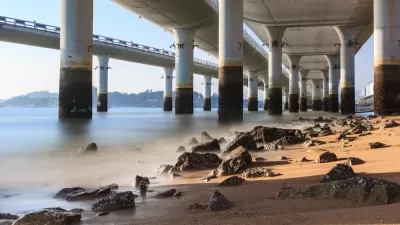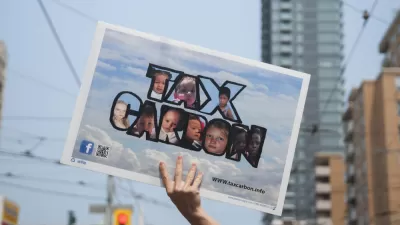China's Belt and Road Initiative, a massive program to develop infrastructure in dozens of countries worldwide, may be the largest construction project in history. Its benefits to host countries—and to China itself—remain far from certain.

"The Belt and Road Initiative, launched in 2013 by Chinese President Xi Jinping, includes hundreds of infrastructure projects financed and constructed in part or in whole by Chinese entities in lands far beyond China’s borders. Projects include ports, airports, rail lines, utilities, industrial centers, highways, and even entire new cities and urban sectors....together they aim for nothing less than the unification of almost all of Asia and Africa."
"Analysts estimate that trade generated by the BRI reached $117 billion last year. The total estimated cost, by 2027: up to $1.3 trillion. Whether that investment will pay off for China remains to be seen. Chinese banks and companies hope to profit from loan payments and contracts; the Chinese state hopes to benefit by opening markets and gaining influence. The World Bank estimates that the BRI could reduce transportation times on many corridors by 12 percent, increase trade between 2.7 percent and 9.7 percent, increase income by up to 3.4 percent, and lift 7.6 million people from extreme poverty."
"In many cases, benefits to host countries have not materialized. Many projects use little local expertise or labor; rather, they are boons for Chinese engineering firms, construction companies, and suppliers such as steel and concrete manufacturers. Once built, they take on a nearly colonial tenor, moving raw materials out of host countries and moving Chinese goods into them. And no matter how economists feel about BRI projects, the initiative has already alarmed environmentalists."
FULL STORY: China’s Belt and Road Initiative is tying the world together—but what's the end game?

Planetizen Federal Action Tracker
A weekly monitor of how Trump’s orders and actions are impacting planners and planning in America.

Vehicle-related Deaths Drop 29% in Richmond, VA
The seventh year of the city's Vision Zero strategy also cut the number of people killed in alcohol-related crashes by half.

As Trump Phases Out FEMA, Is It Time to Flee the Floodplains?
With less federal funding available for disaster relief efforts, the need to relocate at-risk communities is more urgent than ever.

More Apartments Are Being Built in Less-Dense Areas
Rising housing costs in urban cores and a demand for rental housing is driving more multifamily development to exurbs and small metros.

Plastic Bag Bans Actually Worked
U.S. coastal areas with plastic bag bans or fees saw significant reductions in plastic bag pollution — but plastic waste as a whole is growing.

Improving Indoor Air Quality, One Block at a Time
A movement to switch to electric appliances at the neighborhood scale is taking off in California.
Urban Design for Planners 1: Software Tools
This six-course series explores essential urban design concepts using open source software and equips planners with the tools they need to participate fully in the urban design process.
Planning for Universal Design
Learn the tools for implementing Universal Design in planning regulations.
Borough of Carlisle
Smith Gee Studio
City of Camden Redevelopment Agency
City of Astoria
Transportation Research & Education Center (TREC) at Portland State University
Camden Redevelopment Agency
City of Claremont
Municipality of Princeton (NJ)



























